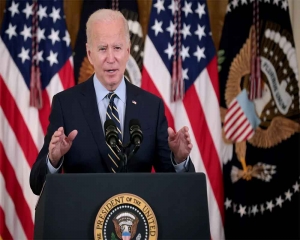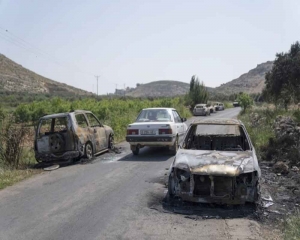The largest democracy on the earth, India, in spite of its clumsy democratic setup, has handled the situation fairly well
Even as the world is witnessing one of the worst tragedies — in the form of Covid-19 pandemic that has killed over 2.4 lakh people — in the recorded history, the viral assault and the combat against it have been varied across the globe. While debate on the origin of the coronavirus continues unabated, with US President openly blaming China and planning to exact damages for the loss of American lives, an important issue has failed to gain the desired traction: the relationship between the types of governance/ society and the fight against the pandemic.
There are two parameters against which the issue can be adjudged: (A) governmental system and governance structure of a country, and (B) distribution of power and wealth among the people of that nation.
There has always been a debate as to which model of governance is close to perfection. Generally, the parameters to judge supremacy of one over another are — participation of citizenry in government formation, government policies relating to people’s welfare, protection of people’s right, rule of law, defence power, development of science and technology, and wealth creation.
Although, there is no perfect structure to determine a model of perfection in this regard, however, any model where people are permitted to participate directly or indirectly in the governance system is considered close to perfection. Here a vibrant democratic country like India positions herself among the toppers.
However, considering the economic progress of China in the last few decades, political pundits sometimes try to make a compromise on human rights which limit the absolute power of a nation-state, and are ready to give primacy to economic growth, whichever way it is achieved, over the democratic welfare system.
In war against coronavirus, governments across the world have been exposed. Irrespective of the governance system, there is a wide gap in leadership style and understanding of its objective, between top leadership and leaders at state/regional level.
In the time of crisis, cohesion is the biggest attribute to mitigate the impact of the pandemic on the health of a nation and its inhabitants. On the other hand, the largest democracy India, despite its clumsy democratic setup, has handled the situation fairly well.
The Indian Constitution permits different political parties can rule States and the Centre and all political functionaries take their right of speech and expression to criticise Opposition parties very seriously. In the current crisis, all political parties have shown exemplary unanimity in taking hard decisions without criticising the Centre.
This one simple aspect has produced different results, in terms of infections and mortality rates, for different governing systems.
Another aspect of relevance is direct correlation of concentration of power and wealth in a few hands, although such concentration is a hallmark of humanity. The capitalism and advent of technology has produced a stark gap between “haves” and “have nots” as a result, this pandemic has hit the most vulnerable population the hardest.
India recently saw a sea of humanity walking back from urban cities to their homes in rural areas. I agree that there is no perfect formula or mechanics to equi-distribute wealth among two sets of people.
In order to create protection for the entire human population, it is imperative that concentration of power and wealth should be limited and there should be widespread use of wealth and resources to mitigate miseries of the poor around the world.
The current coronavirus crisis is a grim reminder to bring parity among two sections of the human population and governments need to work on it.
(The writer, a class 12 student of DPS RK Puram, is a national-level tennis player)

























